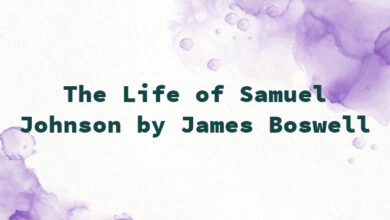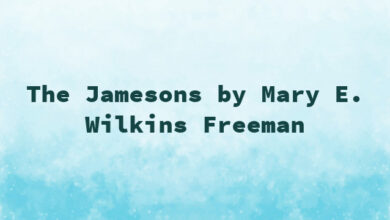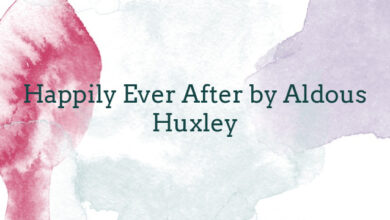
The Devil’s Dictionary by Ambrose Bierce
Originally published as The Cynic’s Word Book, Ambrose Bierce’s wickedly satirical “reference book” was retitled The Devil’s Dictionary in 1911.
Preface
The Devil’s Dictionary was begun in a weekly paper in 1881, and was continued in a desultory way at long intervals until 1906. In that year a large part of it was published in covers with the title The Cynic’s Word Book, a name which the author had not the power to reject or happiness to approve. To quote the publishers of the present work: “This more reverent title had previously been forced upon him by the religious scruples of the last newspaper in which a part of the work had appeared, with the natural consequence that when it came out in covers the country already had been flooded by its imitators with a score of ‘cynic’ books — The Cynic’s This, The Cynic’s That, and The Cynic’s Other. Most of these books were merely stupid, though some of them added the distinction of silliness. Among them, they brought the word “cynic” into disfavor so deep that any book bearing it was discredited in advance of publication. Meantime, too, some of the enterprising humorists of the country had helped themselves to such parts of the work as served their needs, and many of its definitions, anecdotes, phrases and so forth, had become more or less current in popular speech. This explanation is made, not with any pride of priority in trifles, but in simple denial of possible charges of plagiarism, which is no trifle. In merely resuming his own the author hopes to be held guiltless by those to whom the work is addressed — enlightened souls who prefer dry wines to sweet, sense to sentiment, wit to humor and clean English to slang. A conspicuous, and it is hope not unpleasant, feature of the book is its abundant illustrative quotations from eminent poets, chief of whom is that learned and ingenius cleric, Father Gassalasca Jape, S.J., whose lines bear his initials. To Father Jape’s kindly encouragement and assistance the author of the prose text is greatly indebted.
So plain the advantages of machination
It constitutes a moral obligation,
And honest wolves who think upon't with loathing
Feel bound to don the sheep's deceptive clothing.
So prospers still the diplomatic art,
And Satan bows, with hand upon his heart.
R.S.K.
The American, a newspaper in New York City, has a memory that goes back to the time when he was a rascal, but not to the fact. The President of the United States was born so long ago that many of the friends of his youth have risen to high political and military preferment without the assistance of personal merit. The verses following were written by a macrobian:
When I was young the world was fair
And amiable and sunny.
A brightness was in all the air,
In all the waters, honey.
The jokes were fine and funny,
The statesmen honest in their views,
And in their lives, as well,
And when you heard a bit of news
'Twas true enough to tell.
Men were not ranting, shouting, reeking,
Nor women "generally speaking."
The Summer then was long indeed:
It lasted one whole season!
The sparkling Winter gave no heed
When ordered by Unreason
To bring the early peas on.
Now, where the dickens is the sense
In calling that a year
Which does no more than just commence
Before the end is near?
When I was young the year extended
From month to month until it ended.
I know not why the world has changed
To something dark and dreary,
And everything is now arranged
To make a fellow weary.
The Weather Man -- I fear he
Has much to do with it, for, sure,
The air is not the same:
It chokes you when it is impure,
When pure it makes you lame.
With windows closed you are asthmatic;
Open, neuralgic or sciatic.
Well, I suppose this new regime
Of dun degeneration
Seems eviler than it would seem
To a better observation,
And has for compensation
Some blessings in a deep disguise
Which mortal sight has failed
To pierce, although to angels' eyes
They're visible unveiled.
If Age is such a boon, good land!
He's costumed by a master hand!
Venable Strigg
illustration, this present (and illustrious) lexicographer is no firmer in the faith of his own sanity than is any inmate of any madhouse in the land; yet for aught he knows to the contrary, instead of the lofty occupation that seems to him to be engaging his powers he may really be beating his hands against the window bars of an asylum and declaring himself Noah Webster, to the innocent delight of many thoughtless spectators.
A lovelorn maiden she sat and sang --
This quaint, sweet song sang she;
"It's O for a youth with a football bang
And a muscle fair to see!
The Captain he
Of a team to be!
On the gridiron he shall shine,
A monarch by right divine,
And never to roast on it -- me!"
Opoline Jones
He swore that all other religions were gammon,
And wore out his knees in the worship of Mammon.
Jared Oopf
When the world was young and Man was new,
And everything was pleasant,
Distinctions Nature never drew
'Mongst kings and priest and peasant.
We're not that way at present,
Save here in this Republic, where
We have that old regime,
For all are kings, however bare
Their backs, howe'er extreme
Their hunger. And, indeed, each has a voice
To accept the tyrant of his party's choice.
A citizen who would not vote,
And, therefore, was detested,
Was one day with a tarry coat
(With feathers backed and breasted)
By patriots invested.
"It is your duty," cried the crowd,
"Your ballot true to cast
For the man o' your choice." He humbly bowed,
And explained his wicked past:
"That's what I very gladly would have done,
Dear patriots, but he has never run."
Apperton Duke
Material things I know, or fell, or see;
All else is immaterial to me.
Jamrach Holobom
M is for Moses,
Who slew the Egyptian.
As sweet as a rose is
The meekness of Moses.
No monument shows his
Post-mortem inscription,
But M is for Moses
Who slew the Egyptian.
The Biographical Alphabet
to be made of it.) A fine white clay, which for convenience in coloring it brown is made into tobacco pipes and smoked by the workmen engaged in that industry. The purpose of coloring it has not been disclosed by the manufacturers.
There was a youth (you've heard before,
This woeful tale, may be),
Who bought a meerschaum pipe and swore
That color it would he!
He shut himself from the world away,
Nor any soul he saw.
He smoke by night, he smoked by day,
As hard as he could draw.
His dog died moaning in the wrath
Of winds that blew aloof;
The weeds were in the gravel path,
The owl was on the roof.
"He's gone afar, he'll come no more,"
The neighbors sadly say.
And so they batter in the door
To take his goods away.
Dead, pipe in mouth, the youngster lay,
Nut-brown in face and limb.
"That pipe's a lovely white," they say,
"But it has colored him!"
The moral there's small need to sing --
'Tis plain as day to you:
Don't play your game on any thing
That is a gamester too.
Martin Bulstrode
By misdemeanors he essays to climb
Into the aristocracy of crime.
O, woe was him! -- with manner chill and grand
"Captains of industry" refused his hand,
"Kings of finance" denied him recognition
And "railway magnates" jeered his low condition.
He robbed a bank to make himself respected.
They still rebuffed him, for he was detected.
S.V. Hanipur
considering. He has founded upon him a theory of the universe, which the creature bears without resentment, for the monad is a gentlmean. Small as he is, the monad contains all the powers and possibilities needful to his evolution into a German philosopher of the first class -- altogether a very capable little fellow. He is not to be
confounded with the microbe, or bacillus; by its inability to discern him, a good microscope shows him to be of an entirely distinct species.
The man who writes in Saxon
Is the man to use an ax on
Judibras
The bones of Agammemnon are a show,
And ruined is his royal monument,
but Agammemnon's fame suffers no diminution in consequence. The monument custom has its reductiones ad absurdum in monuments "to the unknown dead" -- that is to say, monuments to perpetuate the memory of those who have left no memory.
It is sayd there be a raunge of mountaynes in the Easte, on
one syde of the which certayn conducts are immorall, yet on the other
syde they are holden in good esteeme; wherebye the mountayneer is much
conveenyenced, for it is given to him to goe downe eyther way and act
as it shall suite his moode, withouten offence.
Gooke's Meditations
By means of the Mummy, mankind, it is said,
Attests to the gods its respect for the dead.
We plunder his tomb, be he sinner or saint,
Distil him for physic and grind him for paint,
Exhibit for money his poor, shrunken frame,
And with levity flock to the scene of the shame.
O, tell me, ye gods, for the use of my rhyme:
For respecting the dead what's the limit of time?
Scopas Brune




